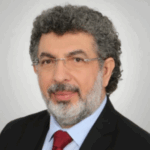

This webinar explored the evolving relationship between quality assurance in tertiary education and university rankings, focusing on their distinct roles, key differences, and potential areas for synergy and mutual reinforcement.
University rankings have become influential tools for benchmarking institutions at national, regional, and global levels, using defined parameters and metrics to indicate excellence in different areas of academic activity, often with a strong emphasis on research. Typically managed by private organisations, rankings rely on large datasets, quantifiable indicators, and expert data analysis.
Quality assurance aims to provide stakeholders with confidence that tertiary education providers meet minimum expectations of quality and academic standards, with a strong emphasis on teaching and learning. Often serving a statutory or regulatory function, quality assurance is traditionally grounded in institutional self-assessment, academic judgement by peers, and a focus on internal processes and policy implementation.
Despite their differences, both systems are converging in interesting ways. Quality assurance bodies around the world are adopting more data-informed and outcomes-based approaches, while the proliferation of rankings has prompted greater awareness of their subjective components – particularly in the selection and weighting of indicators.
Both systems, in different ways, influence student choices, shape education policy, and guide international collaboration. Notably, both are also expanding their scope to include broader dimensions of tertiary education, such as institutional impact, contributions to the Sustainable Development Goals (SDGs), social responsibility, and evolving delivery models, such as online education.
This webinar examined how rankings and quality assurance can coexist and complement each other, and how closer alignment might enhance trust, transparency, and impact in global tertiary education.
We heard from international experts sharing their different perspectives on the topic:
 Ellen Hazelkorn
Ellen Hazelkorn
Prof. Ellen Hazelkorn is a leading international expert in higher education policy, governance, human capital and skills development, QA and rankings, and science and innovation. She is Professor Emeritus at Technological University Dublin and Joint Managing Partner at BH Associates. She advises the European Commission, OECD, UNESCO, World Bank, and numerous national governments. Ellen serves on several international expert panels and is Joint Editor of Policy Reviews in Higher Education. She previously served as Vice President, Dublin Institute of Technology (now TU Dublin) (1995-2015) overseeing research, innovation, and enterprise development. She was a member of the Quality Board for Higher Education in Iceland and advisor to the Irish government on a unified tertiary system, and was recently appointed by the Polish Ministry of Science and Higher Education as a member of the international team of experts for the “Excellence Initiative – Research University” (IDUB) programme. She wrote the background paper for the Intergovernmental Conference for the Global Convention on the Recognition of Qualifications concerning HE (2025), and is currently working with the St Kitts-Nevis government/UNESCO to restructure the accreditation system. A prolific author and speaker, Ellen has published almost 200 peer-reviewed articles, book chapters, short articles and blogs, commentaries, and policy papers on, inter alia, higher education rankings, civic/regional engagement and tertiary education.
 Ishan Cader
Ishan Cader
Ishan is a Senior Director at Times Higher Education (THE), with global responsibility for government ministries, international organisations, transnational education, and sustainability. He joined THE in August 2021, having previously been Head of Quality and Strategy at Pearson. Ishan has pioneered a series of consultancy services to support transnational education development, national quality excellence frameworks, infrastructural transformation and ecosystem design for emerging and developing educational systems.
Ishan has nearly twenty years of experience in global higher education, and has held leadership roles with academic, regulatory, commercial and strategic responsibilities. He has worked in both public and private sector higher education, including lectureships at UK and US universities. Making the transition from teaching into academic management and then consultancy, Ishan brings a holistic and deep knowledge of the sector, and acts as an advisor to senior government officials and university leaders to support quality and excellence across diverse national education contexts.
 Lynette G. Kisaka
Lynette G. Kisaka
Lynette G. Kisaka is one of the newly appointed external experts on the International Network for Quality Assurance Agencies in Higher Education (INQAAHE) International Standards and Guidelines (ISGs) Recognition Review Committee. She previously served at Kenya’s Commission for University Education (CUE) for over thirteen years in accreditation and quality assurance. For eight years she served as Deputy Director, Quality Audit, spearheading institutional and programme quality audit in universities. Through the national regulatory agency, Lynette has participated in the development and review of various QA tools at the national level and contributed, at regional level, to the development of such tools as academic programme benchmarks in various academic disciplines under the auspices of the Inter-University Council of East IUCEA (IUCEA). Through the German Academic Exchange Service (DAAD), she has been involved in the Harmonisation of the African Higher Education Quality Assurance and Accreditation (HAQAA) initiative, central to which are the African Standards and Guidelines for Quality Assurance (ASG-QA), the African Quality Rating Mechanism (AQRM), the African Continental Qualifications Framework (ACQF), and the African Credit Transfer System (ACTS) as instruments for quality enhancement, cross-border recognition of qualifications, and student and staff mobility.
 Olgun Çiçek
Olgun Çiçek
My contributions extend to several leadership roles within the global higher education landscape over 10 countries in three continents for the last three decades. My areas of expertise lies within Internationalisation of HE, Strategic Collaborations, Quality Assurance & Accreditation as well as Global Rankings. I serve as an elected Board Director of INQAAHE (International Network for Quality Assurance Agencies in Higher Education) and hold leadership positions as Past-Vice President of CEENQA (Central and Eastern European Network of Quality Assurance Agencies in Higher Education) and President of IQA (Association of Quality Assurance Agencies of the Islamic World). I have been recognized for my expertise by being elected as a member of the CHEA-CIQG (Council for Higher Education Accreditation’ America) International Advisory Council in the USA since 2022. I also hold the position of Accreditation Committee member at the British Accreditation Council (BAC) in the UK since 2020. I am also elected as a Member of the QAC (Quality Assurance Committee) at Malta Quality Assurance Agency. Currently, I serve as an International Advisor for THEQC and as the Secretary General of the International Strategic Partners Council, Ministry of Higher Education and Science, Kazakhstan. Recently, I have been appointed as a Board Member of TNE Institute, UK as well. I play pivotal roles as an Advisory Board member, keynote speaker, panel chair, reviewer/evaluator, and advisor for numerous institutional and program accreditation organizations across continents including America, Europe, Central Asia, Middle East, and the Far East.
The session was chaired by:
 Fabrizio Trifiro
Fabrizio Trifiro
Fabrizio is a member of the Board of Directors of the International Network of Quality Assurance in Higher Education (INQAAHE), a member of the Accreditation Committee of the British Accreditation Council (BAC), and an independent member of the Governing Board of Wrexham University in Wales.
With two decades of experience in international higher education and its regulation Fabrizio has acted as independent consultant to a number of quality assurance bodies and international organisations. More recently he supported the development of the Bhutan national credit transfer scheme as part of a broader UNESCO capacity development intervention.
By subscribing to the newsletter, you agree to our privacy policy.